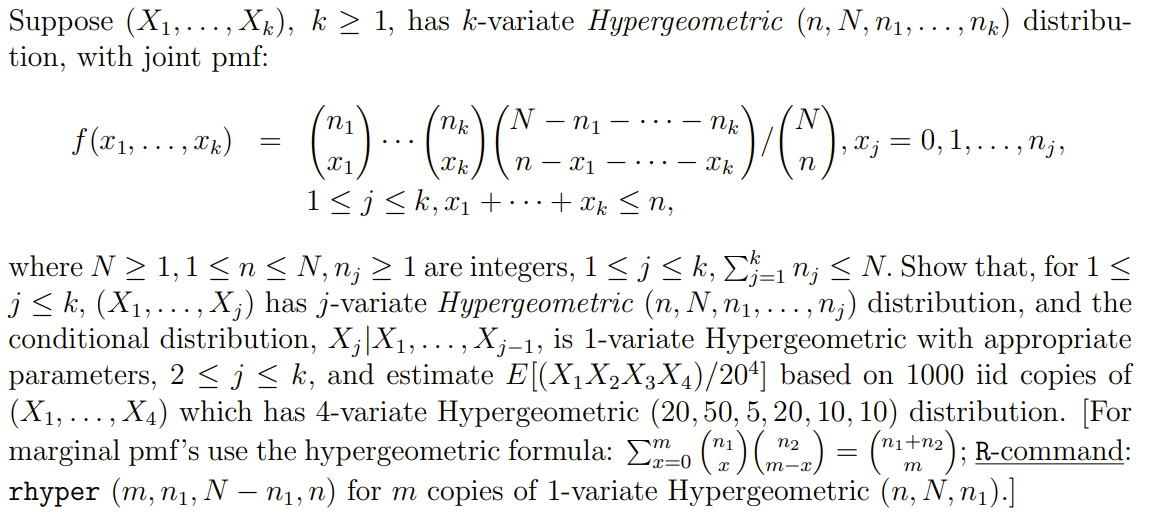Answered step by step
Verified Expert Solution
Question
1 Approved Answer
Please do this with R programming! Please use the R command 'rhyper' Suppose (X1,,Xk),k1, has k-variate Hypergeometric (n,N,n1,,nk) distribution, with joint pmf: f(x1,,xk)=(n1x1)(nkxk)(Nn1nknx1xk)/(Nn),xj=0,1,,nj1jk,x1++xkn where N1,1nN,nj1
Please do this with R programming!
Please use the R command 'rhyper'

Step by Step Solution
There are 3 Steps involved in it
Step: 1

Get Instant Access to Expert-Tailored Solutions
See step-by-step solutions with expert insights and AI powered tools for academic success
Step: 2

Step: 3

Ace Your Homework with AI
Get the answers you need in no time with our AI-driven, step-by-step assistance
Get Started


